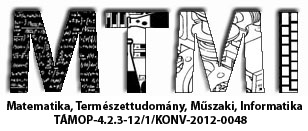Approaches in Basic Laparoscopic Surgical Training for the Medical Students at the Department of Operative Techniques and Surgical Research, University of Debrecen
Abstract data
INTRODUCTION: The first accredited laparoscopic credit course started in September, 1995 for 4th years Hungarian and English Programs’ medical students at the Department of Operative Techniques and Surgical Research. Performing laparoscopic surgery requires several special skills, different techniques are used comparing conventional open surgery. Young surgeons experience difficulties in learning and mastering these techniques.
MATERIAL AND METHODS: Department of Operative Techniques and Surgical Research has elective course entitled ‘Basic Laparoscopic Surgical Training’, which consists of 3 lecture hours and 12 practical hours. By time different gradually increasing in the difficulty tasks had to be completed according to the official thematic. Aims of this work were to (1) introduce personal experiences during this course, when improving coordination and knotting technique, and (2) to evaluate data of 10 participants on sense of depth, traction power at the beginning and at the end of the course by joining to an ongoing course.
RESULTS: During the course students were introduced to a history of laparoscopic surgery, where key role was played by a famous Hungarian doctor Janos Veres (who graduated in Debrecen, 1928) creating the famous Veres-needle used for performing pneumoperitoneum. After it they gained practical experience by working with open/closed pelvi-box, moulage models, Minimal Access Therapy Technique (MATT) trainer and biopreparates. All participants improved their abilities and the knotting time decreased. Moreover students later will be able to assist in laparoscopic surgical procedures.
CONCLUSION: Various training methods and metrics have been developed to assess and improve students’ operative abilities. Simulation training is an important and invaluable tool in training.
Támogatók: Támogatók: Az NTP-TDK-14-0007 számú, A Debreceni Egyetem ÁOK TDK tevékenység népszerűsítése helyi konferencia keretében, az NTP-TDK-14-0006 számú, A Debreceni Egyetem Népegészségügyi Karán folyó Tudományos Diákköri kutatások támogatása, NTP-HHTDK-15-0011-es A Debreceni Egyetem ÁOK TDK tevékenység népszerűsítése 2016. évi helyi konferencia keretében, valamint a NTP-HHTDK-15-0057-es számú, A Debreceni Egyetem Népegészségügyi Karán folyó Tudományos Diákköri kutatások támogatása című pályázatokhoz kapcsolódóan az Emberi Erőforrás Támogatáskezelő, az Emberi Erőforrások Minisztériuma, az Oktatáskutató és Fejlesztő Intézet és a Nemzeti Tehetség Program



